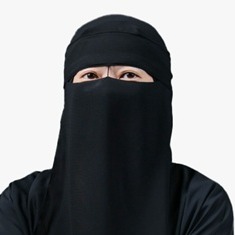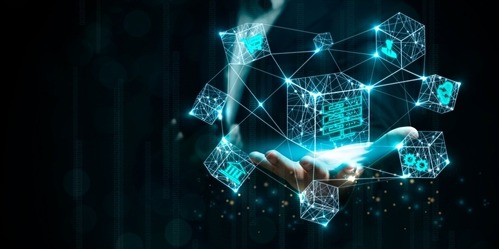Can blockchain redeem global finance?
It’s easy to say people have lost faith in the financial system. But what does that actually look like?
It looks like savings shrinking under inflation while banks post record profits. It looks like being denied a loan despite working two jobs. It’s paying years of insurance premiums, only to be told your claim doesn’t qualify when tragedy strikes.
In countries around the world, trust in financial institutions is eroding. A 2023 global survey by Edelman found that fewer than 50% of people trust banks to do what’s right and that figure drops even further among Gen Z and millennials.
These generations have watched bailouts flow to the powerful, while ordinary families are left with overdraft fees and frozen accounts. They’ve grown wary — not just of banks, but of systems that profit from complexity and exclusion.
But maybe the problem isn’t people. Maybe it’s the system itself.
When systems are built on asymmetry
Most financial structures were designed to be top-down. You deposit your money and trust that the institution will handle it ethically. But time and again, that trust has been tested and often broken.
And for Muslims, that breakdown goes deeper. Even in Muslim-majority countries, many financial offerings labeled ‘“Islamic’” still feel like conventional products wrapped in Shariah marketing.
According to a 2022 study by the International Shariah Research Academy (ISRA), over 70% of Islamic financial institutions engage in dual models that may not align fully with ethical or faith-based expectations.
What’s missing isn’t just trust. It’s transparency, participation, and real-world alignment. That’s where blockchain and more specifically, decentralized autonomous organizations (DAOs) present a potential shift.
Understanding blockchain and DAOs minus the hype
A blockchain is a digital ledger that records transactions publicly and immutably. Once data is added, it can’t be changed. Everyone can see what’s happening, but no one can alter it behind closed doors.
DAOs build on that infrastructure. A DAO isn’t a company or an app. It’s a collectively governed organization that runs on code, not executives. Rules are written into smart contracts that automatically execute decisions based on the consensus of its members. Voting is open. Funds are traceable. No individual holds the keys.
This model challenges the very foundation of how most financial systems work and offers a new blueprint.
When technology reflects timeless values
For Muslims, this isn’t a foreign idea. Shura (consultation), waqf (endowment), and the ummah (community) have long served as frameworks for mutual aid and collective governance.
In early Islamic history, financial structures weren’t built to extract profit from the many, they were designed to circulate wealth fairly, fund public good, and preserve human dignity.
The Bayt al-Mal (public treasury), managed with community oversight, distributed resources to widows, orphans, and the poor. Waqf systems funded schools and hospitals across the Muslim world for centuries.
DAOs don’t replicate these frameworks perfectly but they echo the same spirit. They offer a path forward that’s less about disruption and more about restoration.
Intentional innovation is what matters
Some critics dismiss blockchain as overhyped or too technical. Others fear it will replicate the very power imbalances it claims to dismantle. And they’re right to be cautious. Technology is neutral, it reflects the intent of the people using it.
When guided by ethics and inclusion, blockchain can become a powerful tool for rebuilding trust.
Consider The LifeDAO (TLD). It’s not the only example and it shouldn’t be the focal point but it does offer a working case. TLD operates as a DAO to provide financial protection without traditional insurance structures.
Members voluntarily contribute to a communal fund, and when one passes away, their nominee receives a direct payout, without gatekeeping, delays, or profit motives.
Everything from fund governance to decision-making happens transparently, guided by consultation (shura) rather than executive fiat. It’s a financial tool that feels more like a community than a corporation.
Elsewhere, DAOs are funding regenerative agriculture, supporting decentralized journalism, and offering peer-powered alternatives to health insurance. The point isn’t to romanticize the tech but to spotlight a growing movement of people using it to build systems that serve, not extract.
What stands in the way
Of course, this model isn’t without its challenges.
According to the World Economic Forum (2023), more than 60% of adults globally lack the digital skills needed to securely use blockchain tools. There are also legal gray areas: DAOs remain unregulated in many jurisdictions, making it harder to enforce agreements or protect contributors from fraud.
But these aren’t reasons to dismiss the model. They’re reminders that the work ahead is real and necessary. Building ethical alternatives takes more than smart contracts. It requires community trust, governance education, and a willingness to prioritize long-term resilience over short-term returns.
The real question isn’t “Can it work?”
It’s whether we have the courage to build financial systems that reflect the values we say we believe in.
If blockchain is just another way to hoard, hide, or hustle then we’ve learned nothing. But if it becomes a tool to redistribute trust, decentralize power, and amplify shared responsibility, then we may be witnessing not a technological revolution, but a moral one.
So the question isn't whether blockchain can redeem global finance.
It’s whether we’re ready to redeem it by showing up, shaping it, and making sure it doesn’t leave our communities behind.
Because in the end, faith in finance won’t be restored through slogans. It’ll be rebuilt through systems people can see, trust, and shape together — one block, one voice, and one shared decision at a time.
Sharene Lee is chief operating officer & co-founder of Takadao


Sharene Lee